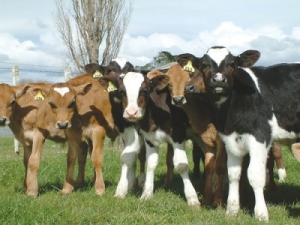MPI Hails Kiwifruit Boom as Horticulture Revenue Surges Past $9 Billion
Ministry for Primary Industries (MPI) Director General Ray Smith is giving a big shout-out to the horticulture sector, especially kiwifruit.
 The new rules will give MPI greater visibility of the welfare of animals being exported from New Zealand.
The new rules will give MPI greater visibility of the welfare of animals being exported from New Zealand.
New rules that will give the Ministry for Primary Industries (MPI) greater visibility of the welfare of animals being exported from New Zealand will come into force on August 25, 2016, MPI announced.
"New Zealanders care deeply about the welfare of animals, and this was reflected during the consultation process," says MPI's director biosecurity and animal welfare Julie Collins.
"The changes that are being introduced in August will further strengthen New Zealand's reputation as a responsible exporter of animals and animal products.
"They will give early effect to amendments made last year to the Animal Welfare Act 1999 that would have otherwise commenced in May 2020".
The changes will give MPI's Director-General more powers to:
require reports on the welfare of animals during their journey and for up to 30 days after their arrival in the importing country, and take that information into account when considering future export approvals.
In addition, the current regime under the Customs Export Prohibition (Livestock for Slaughter) Order 2013 will be moved to regulations under the Animal Welfare Act. These regulations will come into force on December 21, 2016.
"Currently this regime is implemented under the Customs and Excise Act 1996, and needs to be renewed every three years. Under the new regulations the requirement to renew this will be removed.
"I'd like to thank everyone who took the time to give us their feedback in the interests of New Zealand's animals."
A solid recovery of global dairy prices this year makes a $9.50/kgMS milk price almost a shoo-in for this season.
As New Zealand marks the United Nations’ International Year of the Woman Farmer 2026 (IYWF 2026), industry leaders are challenging the misconception that women only support farming.
Fonterra’s impending exit from the Australian dairy industry is a major event but the story doesn’t change too much for farmers.
Expect greater collaboration between Massey University’s school of Agriculture and Environment and Ireland’s leading agriculture university, the University College of Dublin (UCD), in the future.
A partnership between Torere Macadamias Ltd and the Riddet Institute aims to unlock value from macadamia nuts while growing the next generation of Māori agribusiness researchers.
A new partnership between Dairy Women’s Network (DWN) and NZAgbiz aims to make evidence-based calf rearing practices accessible to all farm teams.

OPINION: Here w go: the election date is set for November 7 and the politicians are out of the gate…
OPINION: ECan data was released a few days ago showing Canterbury farmers have made “giant strides on environmental performance”.